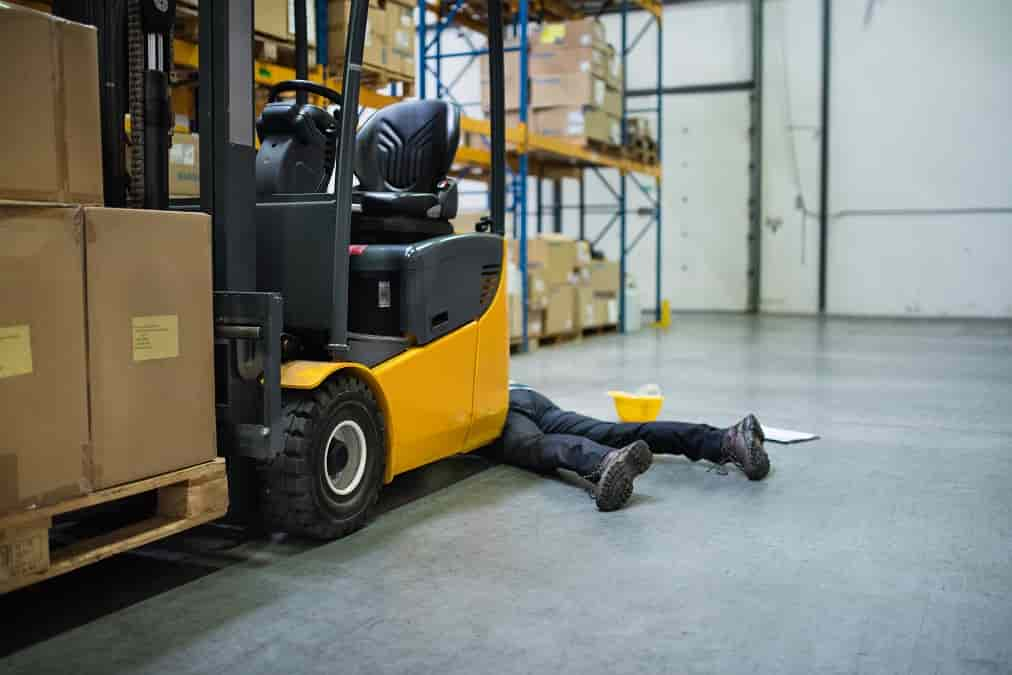What To Do After An Accident At Work
If an accident does occur in the workplace, it is important to take appropriate action. This includes seeking medical attention if necessary, reporting the accident to a supervisor, and recording details of the accident. This information should be used to identify the cause of the accident and take steps to prevent similar accidents from occurring in the future.
How Unions Can Help
Preventing workplace accidents requires a collaborative effort between employers and employees. Employers should provide appropriate training, supervision, and equipment to ensure that employees can work safely. Employees, meanwhile, should take responsibility for their own safety and that of their colleagues. This includes following safety procedures, using equipment properly, and reporting any hazards or concerns to their supervisor. By working together, employers and employees can create a safe and productive workplace that benefits everyone.
Workers who experience poor health and safety in the workplace should consider joining a union. Unions play an important role in supporting workers who have experienced a workplace accident. They provide legal advice on issues such as workers’ compensation, medical care, and rehabilitation.
The Workers Union can help you with workplace injuries. Our experts are ready to listen to your case. Visit our why join page for more information or sign up here

Reporting Accidents In The Workplace
Reporting accidents is an important part of preventing workplace accidents. It allows employers to identify potential hazards and take steps to address them. It also ensures that individuals receive appropriate medical care and support, and helps to prevent similar accidents from occurring in the future. Employers should therefore encourage employees to report accidents and ensure that there are appropriate reporting procedures in place.
- Assess the situation: Ensure your safety and the safety of others around you. If the accident poses an immediate threat to anyone’s safety, evacuate the area if necessary.
- Seek medical assistance: If anyone is injured or experiencing pain, call for medical help immediately. Perform first aid if you are trained and it is safe to do so.
- Report the accident: Notify your supervisor, manager, or designated health and safety representative as soon as possible. Provide them with details about the incident, including what happened, when it happened, and who was involved.
- Document the incident: Take photographs or videos of the accident scene if it is safe to do so. Write down notes about the incident, including the names of any witnesses and any contributing factors that led to the accident. This information will be crucial for any subsequent investigations or insurance claims.
- Preserve evidence: If the accident was caused by faulty equipment, do not attempt to repair or dispose of it. This may be needed as evidence for an investigation or a claim.
- Cooperate with investigations: Be honest and forthcoming when speaking with investigators, and provide them with any information or documentation they request.
- Follow company procedures: Adhere to your workplace’s accident reporting and investigation procedures. This may involve filling out an incident report or participating in a debriefing session.
- Seek support: Accidents can be traumatic, both physically and emotionally. Reach out to your union.
Accidents At Work
Workplace accidents are a major concern for employers and employees alike. These accidents can result in serious injuries or even fatalities, leading to long-term physical and emotional trauma. In addition to the human cost, workplace accidents can also have a significant impact on productivity and financial performance. It is therefore important to understand the causes of workplace accidents and take steps to prevent them.
The Impact Of Workplace Accidents
Workplace accidents can have a profound impact on individuals and their families. They can result in physical injuries that can be debilitating, requiring long-term medical care and rehabilitation. This can result in significant financial costs for both the individual and their employer. In addition to physical injuries, work accidents can also have a significant impact on mental health. Individuals who have experienced a workplace accident may experience anxiety, depression, and post-traumatic stress disorder (PTSD).
2023 Statistics On Accidents In The Workplace
According to statistics released by the Health and Safety Executive (HSE), 555,000 non-fatal injuries occurred in the UK in 2021/22. In addition, 123 workers were killed in workplace accidents during the same period. These statistics highlight the importance of taking steps to prevent workplace accidents.
Common Types Of Accidents
There are many different types of accidents that can occur in the workplace. Some of the most common types of accidents include slips, trips, and falls, manual handling accidents, and accidents involving machinery or equipment. These accidents can result in a range of injuries, from minor cuts and bruises to more serious injuries such as broken bones, head injuries, and spinal injuries.
Causes Of Accidents
Company negligence is responsible for a significant percentage of workplace accidents. This includes actions such as not following safety procedures, inadequate training, poor maintenance of equipment and machinery, and hazardous working conditions.
Consequences Of Accidents
The consequences of workplace accidents can be severe. In addition to the physical and emotional trauma experienced by individuals, workplace accidents can also result in significant financial costs for both the individual and their employer. These costs can include medical expenses, lost wages, and legal fees.
How To Prevent Accidents In The Workplace
Preventing workplace accidents requires a proactive approach that involves both employers and employees. Employers should provide appropriate training and supervision to ensure that employees are aware of the risks associated with their work and know how to work safely.

They should also provide appropriate PPE and ensure that equipment and machinery are properly maintained. Employees, meanwhile, should be encouraged to take responsibility for their own safety and that of their colleagues. This includes following safety procedures, using equipment properly, and reporting any hazards or concerns to their supervisor.
Frequently Asked Questions
First and foremost, seek medical attention if needed. After that, make sure the accident is recorded in your employer’s ‘accident book,’ which is a legal requirement for most workplaces. Notify your supervisor or employer as soon as possible and gather evidence like photographs or witness accounts, if possible.
Under UK law, if you suffer an injury at work and it’s due to your employer’s negligence or failure to adhere to Health and Safety regulations, you may have the right to make a claim for compensation. The amount of compensation can vary depending on the severity of the injury and the circumstances surrounding the accident.
The Health and Safety Executive (HSE) is the national independent watchdog for work-related health, safety, and illness issues. Employers are obligated to report certain types of accidents, injuries, and dangerous occurrences to the HSE. Depending on the severity and nature of the incident, the HSE may investigate to determine whether appropriate safety regulations were followed.
The general time limit for making a personal injury claim is three years from the date of the accident. However, there are exceptions, such as when you were not immediately aware of the injury. It is advisable to consult a legal advisor as soon as possible to ensure you don’t miss the deadline.
Retaliatory action, such as termination for filing a compensation claim, is generally illegal. If you believe you have been unfairly dismissed or discriminated against for claiming compensation for a workplace accident, you may have further legal recourse for unfair dismissal or victimization.
Employees who suffer an injury at work may be entitled to Statutory Sick Pay (SSP) from their employer for up to 28 weeks. You may also be eligible for benefits like Industrial Injuries Disablement Benefit, depending on the nature and severity of your injury. Employers also have a duty to make reasonable adjustments to your job role or workplace to accommodate your return to work.



